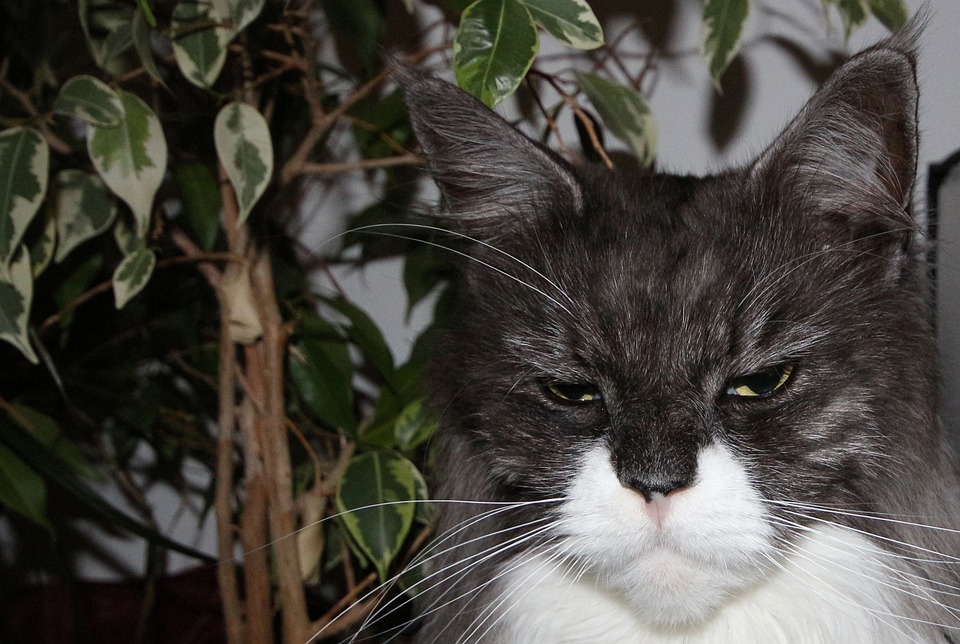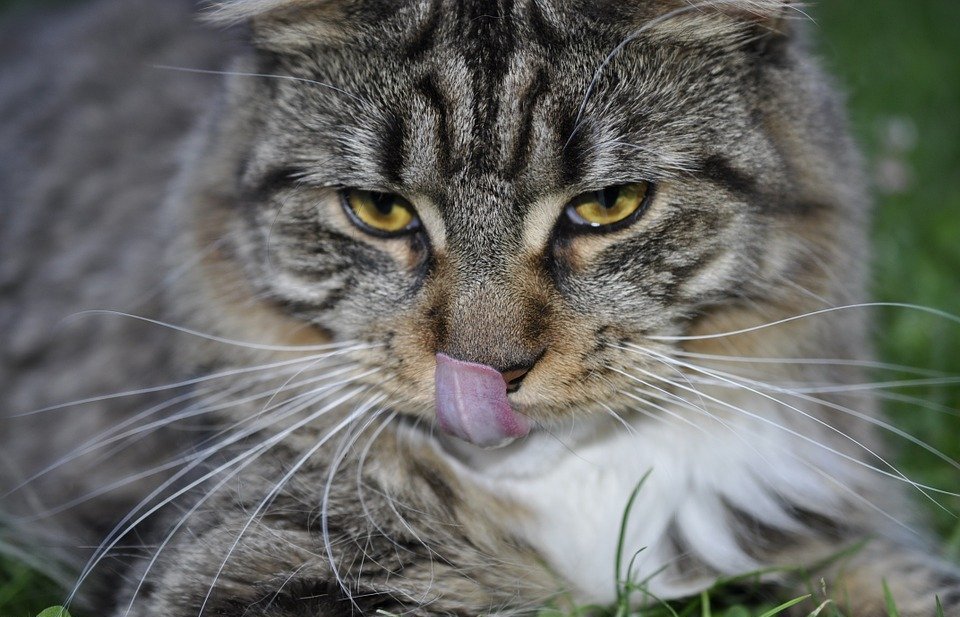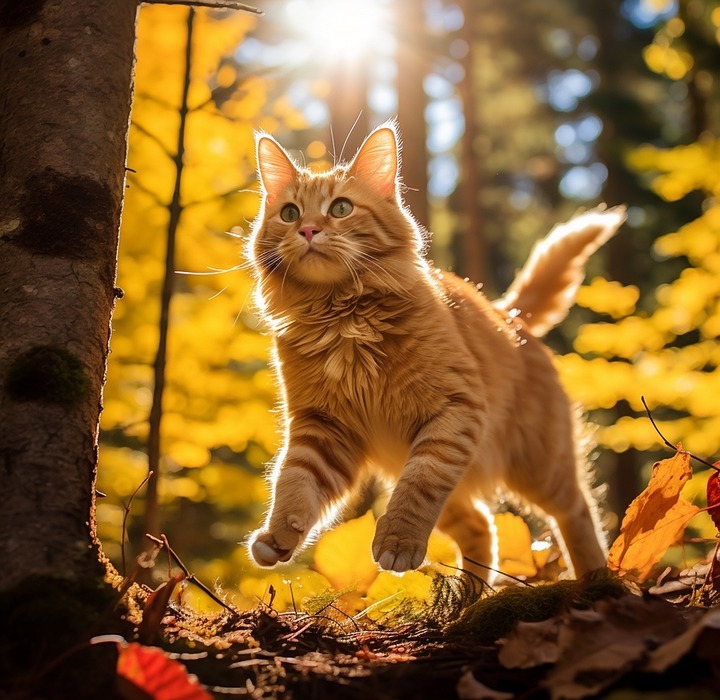This comprehensive guide explores the cost of owning a Maine Coon cat. From the initial purchase price to ongoing expenses, we delve into the factors that influence the price tag of this popular breed. We'll also cover essential considerations like finding a reputable breeder, understanding the differences in cost between kittens and adult cats, and estimating the long-term financial commitment of owning a Maine Coon.
Part 1: The Initial Purchase Price

1.1. Kitten Prices: A Breakdown
- Average Range: A Maine Coon kitten from a reputable breeder typically costs between ??800 and ??1500 in the UK. However, this is a broad range, and prices can fluctuate significantly based on several factors.
- Premium Breeders: Some breeders with exceptional bloodlines, show-winning cats, or rare colour variations might charge even higher prices, often exceeding ??2000 per kitten.
- Ethical Breeders: Reputable breeders prioritize the health and well-being of their cats. They invest in comprehensive health testing, vaccinations, and socialization, which contributes to the kitten's price.
1.2. Factors Influencing Kitten Price
- Bloodlines and Lineage: Kittens from champion bloodlines or with exceptional show potential are often priced higher. Breeders invest considerable time and resources in maintaining these lines, which translates to a greater investment for potential buyers.
- Coat Colour and Pattern: Rare or highly desirable coat colours and patterns can significantly increase a kitten's price. Unique variations like lynx points, tortie, or silver tabby may be more expensive due to their limited availability.
- Gender: While not always a significant factor, male Maine Coon kittens might be slightly more expensive than females, as they tend to grow larger and have a higher potential for show quality.
1.3. Adult Cat Prices: Beyond Kittens
- Adoption Fees: Maine Coons are often available for adoption from shelters or rescue organisations. Adoption fees typically range from ??50 to ??250, which covers basic veterinary care, vaccinations, and microchipping.
- Adult Maine Coons from Breeders: Adult Maine Coons from breeders are less common but can still be found. The price may vary based on the cat's age, health, and breeding history.
- Show Quality Adults: Adult Maine Coons with show potential or exceptional bloodlines can still command high prices, often comparable to the price of kittens from premium breeders.
1.4. Finding a Reputable Breeder: Essential Steps
- Research and Networking: Start your search by seeking recommendations from fellow cat owners, veterinary professionals, or online forums dedicated to Maine Coons.
- Breed Club Membership: Reputable breeders are often members of national breed clubs like the GCCF (Governing Council of the Cat Fancy) in the UK. These clubs often maintain lists of reputable breeders.
- Health Guarantees and Contracts: Ensure the breeder provides a health guarantee and a written contract outlining the responsibilities of both parties. This protects both the breeder and the buyer.
- Visiting the Cattery: Visit the breeder's cattery and observe the environment, the cats' health and temperament, and their interaction with humans. A clean, well-maintained environment indicates responsible breeding practices.
- Meeting the Parents: It's crucial to meet the parents of the kittens, as this provides insight into their temperament, health, and overall characteristics.
Part 2: Ongoing Expenses: A Detailed Breakdown

2.1. Food and Treats: Nourishing Your Maine Coon
- High-Quality Diet: Maine Coons are large cats with high energy requirements. They need a balanced, high-quality diet, ideally consisting of premium commercial cat food or a home-cooked diet formulated by a vet.
- Food Sensitivity: Some Maine Coons may have food sensitivities, necessitating specific diet adjustments or hypoallergenic brands. Consulting a veterinarian can help identify any dietary needs.
- Treats and Supplements: Occasional treats can enrich a Maine Coon's diet, but they should be moderate and chosen carefully. Supplements, like fish oil or joint support, may be necessary depending on individual needs.
2.2. Veterinary Care: Essential Health Management
- Annual Check-ups: Routine vaccinations, parasite prevention, and health checks are essential for maintaining a Maine Coon's well-being. These visits ensure early detection of any health issues.
- Neutering or Spaying: This procedure is recommended for all cats and can help prevent unwanted pregnancies and certain health issues. It also reduces roaming tendencies.
- Dental Care: Maine Coons are prone to dental issues, so regular teeth brushing and professional cleanings are essential. Dental problems can lead to pain, infections, and overall health issues.
- Emergency Care: Unexpected illnesses or injuries can arise, leading to potentially high veterinary costs. Having pet insurance can help mitigate these expenses and provide peace of mind.
2.3. Litter and Litter Box: Keeping It Clean
- Litter Box Size: Maine Coons are large cats, so their litter box should be spacious to accommodate their size. A larger box encourages them to use it and reduces mess.
- Litter Type: The type of litter you choose can influence both cost and odor control. Consider options like clumping, non-clumping, or biodegradable litters, and choose one that your cat prefers.
- Litter Box Maintenance: Regular cleaning and replacement of litter are essential for hygiene and a pleasant environment. Scooping the box daily and replacing the litter weekly or biweekly is recommended.
2.4. Grooming and Supplies: Keeping Your Maine Coon Neat
- Brushing: Maine Coons have long, thick coats that require regular brushing to prevent matting and tangles. Daily brushing is recommended, especially during shedding seasons.
- Nail Trimming: Regular nail trims are necessary for both hygiene and the health of your cat's paws. Overgrown nails can cause discomfort, scratching, and even infections.
- Grooming Tools: Investing in quality grooming tools like brushes, combs, and clippers can make grooming easier and more effective. Choose tools appropriate for your cat's coat type.
Part 3: Additional Costs: Beyond the Basics

3.1. Insurance: Protecting Your Investment
- Pet Insurance Benefits: Pet insurance can help cover unexpected veterinary costs for illnesses or injuries, providing financial peace of mind. It can be particularly valuable for breeds prone to certain health issues, like Maine Coons.
- Coverage Options: Insurance policies vary in coverage levels, premiums, and exclusions. Choose a policy that best suits your budget and your cat's needs. Consider factors like the coverage for genetic conditions and pre-existing conditions.
3.2. Toys and Enrichment: Keeping Your Maine Coon Happy
- Mental Stimulation: Interactive toys, puzzle feeders, and scratching posts provide mental stimulation and enrichment for your Maine Coon. These items help prevent boredom and destructive behaviours.
- Playtime: Regular playtime is essential for a Maine Coon's physical and mental health. Allocate time each day for interactive play sessions, using toys like feather wands, balls, or laser pointers.
3.3. Boarding and Pet Sitters: Vacation Care for Your Maine Coon
- Travel and Vacations: If you're planning to travel and need temporary care for your Maine Coon, boarding facilities or pet sitters offer options. Choose a facility or sitter that is familiar with the breed's specific needs.
- Availability and Cost: The cost of boarding or pet sitting services can vary depending on the facility, location, and duration of care. Book in advance, especially during peak travel seasons.
Part 4: Factors Influencing Cost: Individual Considerations
4.1. Location: Regional Differences
- Urban vs. Rural: The cost of living in urban areas can be higher, impacting the price of veterinary care, pet supplies, and other services. Rural areas may have lower costs overall.
- Demand for Breed: High demand for a particular breed in a specific area can influence the price of kittens and adult cats. Areas with a strong Maine Coon community may have higher prices due to greater competition.
4.2. Lifestyle: Your Impact on Costs
- Active vs. Sedentary: A more active lifestyle with regular play and outdoor adventures may result in higher expenses for toys, grooming tools, and veterinary care. Cats that spend more time indoors may have lower expenses for these items.
- Health and Age: The age and health condition of a Maine Coon can significantly impact ongoing costs, particularly for veterinary care. Older cats may require more frequent check-ups and potentially more expensive treatments.
Part 5: Long-Term Financial Commitment: Planning for the Future
5.1. Estimating Expenses: A Realistic Budget
- Average Annual Cost: The average annual cost of owning a Maine Coon can range from ??1000 to ??2000 in the UK, depending on the factors discussed above. This includes food, litter, veterinary care, and other essential expenses.
- Budgeting and Savings: It's essential to factor in the long-term financial commitment of owning a Maine Coon and plan accordingly. Create a budget that accounts for both routine and unexpected expenses.
5.2. Responsible Ownership: Beyond the Price Tag
- Commitment to Well-being: Owning a Maine Coon is a significant responsibility that requires dedication to their well-being, health, and happiness. Provide them with a loving home, nutritious food, and regular veterinary care.
- Long-Term Care: Be prepared for the financial and emotional commitment involved in providing long-term care for your Maine Coon. They can live for 10-15 years, requiring ongoing care throughout their lives.
Part 6: FAQs
6.1. What is the average price of a Maine Coon kitten?
The average price of a Maine Coon kitten from a reputable breeder can range from ??800 to ??1500, depending on factors such as bloodlines, coat colour, and health testing. Prices may be higher for kittens with exceptional bloodlines or rare colour variations.
6.2. Are Maine Coons more expensive than other cat breeds?
Yes, Maine Coons are generally considered a more expensive breed than some other cat breeds due to their size, dietary needs, and potential health concerns. Their larger size requires more food, and their long, thick coats require more frequent grooming.
6.3. Can I find a Maine Coon for adoption?
Yes, you may be able to find a Maine Coon for adoption at shelters or rescue organisations. The adoption fees are typically lower than the price of a kitten from a breeder and provide a loving home for a cat in need.
6.4. What are the main factors influencing the cost of a Maine Coon?
The price of a Maine Coon can be influenced by factors such as the breeder's reputation, bloodlines, coat colour, health testing, age, and health condition of the cat. Location and demand for the breed can also influence prices.
6.5. Is pet insurance worth it for a Maine Coon?
Pet insurance can be beneficial for Maine Coons, as they are prone to certain health issues. It can help cover unexpected veterinary expenses and provide financial peace of mind. Consider the breed's potential health risks when deciding on insurance coverage.
6.6. What are some potential health issues in Maine Coon cats?
Maine Coon cats are generally healthy, but they can be prone to certain health issues, such as hypertrophic cardiomyopathy (HCM), polycystic kidney disease (PKD), and hip dysplasia. Reputable breeders will screen their cats for these conditions and provide health guarantees to buyers.
Everyone is watching
-

Are Cat Ribs Flexible? Understanding Their Anatomy
CATS & KITTENSThis article delves into the fascinating world of feline anatomy, exploring the flexibility of cat ribs and ho...
-

Can Cats Eat Bananas? (Everything You Need to Know)
CATS & KITTENSThis article dives into the intriguing question of whether cats can safely enjoy the sweet, yellow fruit, bana...
-

Cat Lifespan: How Long Do Cats Live?
CATS & KITTENSThis comprehensive guide explores the factors influencing the lifespan of our feline companions, providing ins...
-

Can Cats Get COVID-19? What You Need to Know
CATS & KITTENSThis article will delve into the fascinating world of feline COVID-19 susceptibility. We'll explore whether ca...
-

Can Cats Eat Eggs? A Complete Guide to Egg Safety for Your Feline Friend
CATS & KITTENSWhen it comes to treating our furry companions, we all want to ensure we're doing what's best for them. Eggs...
